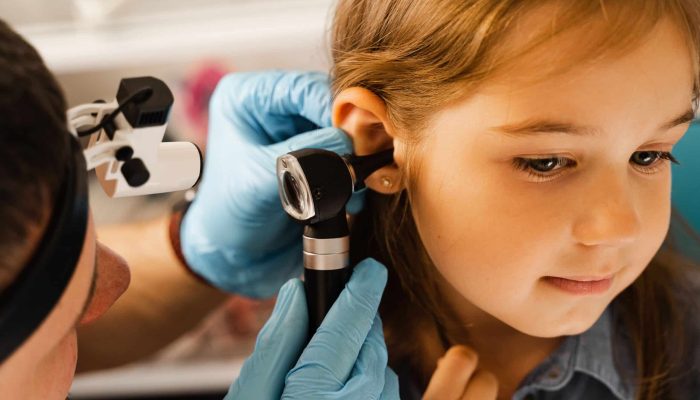
Children often face ENT (Ear, Nose, and Throat) problems that can affect their health and well-being. As a parent, it’s important to know what signs to watch for and how these issues can be treated. Let’s dive into some common pediatric ENT problems, like ear infections, allergies, and other related concerns, and explore how they can be managed.
1. Ear Infections in Children
Ear infections are one of the most common ENT problems in children. They occur when the middle ear becomes infected, usually due to a cold or sinus infection.
Symptoms to watch for:
- Pain in the ear (children may tug at their ears)
- Fever
- Trouble hearing or talking
- Difficulty sleeping
2. Allergies and Nasal Problems
Children with allergies may experience nasal congestion, sneezing, and a runny nose. Allergies can also lead to sinus infections (sinusitis). Common allergens for children include pollen, dust, mold, and pet dander.
Signs of allergies:
- Frequent sneezing
- Stuffy or runny nose
- Itchy eyes
- Coughing
3. Enlarged Tonsils and Adenoids
Tonsils and adenoids are parts of the immune system located in the back of the throat. They help fight infections, but sometimes they become enlarged and cause problems like snoring, difficulty breathing, or frequent throat infections.
What are the symptoms of enlarged tonsils and adenoids?
- Trouble breathing, especially at night
- Loud snoring
- Difficulty swallowing
- Frequent throat infections
4. Sinus Infections (Sinusitis)
Sinusitis is an infection of the sinus cavities, often caused by a cold. Children may have sinus infections if their nasal passages become blocked with mucus, causing pain and discomfort in the face or forehead.
Symptoms include:
- Pain or pressure around the eyes, cheeks, or forehead
- Yellow or green nasal discharge
- Coughing, especially at night
- Bad breath
5. Voice and Speech Issues
Sometimes, children may have issues with their voice or speech. This could be caused by vocal cord problems, allergies, or infections.
Signs to watch for:
- Hoarseness
- A weak or quiet voice
- Difficulty pronouncing words
When to See an ENT Specialist
If your child is experiencing frequent ear infections, trouble breathing, persistent allergies, or any of the symptoms mentioned above, it’s important to consult an ENT specialist in Indore. An ENT can properly diagnose the issue and recommend treatment, whether it’s medication, surgery, or other therapies.
How ENT Treatments Can Help
An ENT specialist uses advanced techniques to treat and manage pediatric ENT issues. From minor procedures like ear tube placements to more complex surgeries, the goal is to ensure your child’s health is in the best hands. Early intervention is key in preventing long-term complications and improving your child’s quality of life.
Conclusion
Pediatric ENT problems can be worrying, but with the right care, they can be managed effectively. If your child is experiencing symptoms like ear pain, nasal congestion, or speech issues, it’s a good idea to consult a trusted ENT specialist. Early treatment helps your child stay healthy and avoid complications down the road.
If you have any concerns or questions about your child’s ENT health, don’t hesitate to reach out to a professional for guidance and support.
